- Watch List
- Course lectures
- MOOCs
- Online Degrees/Certifications
- YouTube channels
- Videos
- Jay’s Visual Intro to AI by Jay Alammar, STV Capital
- AI for Full-Self Driving by Andrej Karpathy, Tesla
- Tesla Full Self Driving explained by Andrej Karpathy
- How AI Powers Self-Driving Tesla with Elon Musk and Andrej Karpathy
- Backprop in ConvNets by Prof. Dhruv Batra, Virginia Tech
- PyTorch at Tesla by Andrej Karpathy, Tesla
- Heroes of Deep Learning: Andrew Ng interviews Andrej Karpathy, Tesla
- Deep Learning in Speech Recognition by Alex Acero, Apple Inc.
- End-to-End Models for Speech Processing at Stanford by Navdeep Jaitly, NVIDIA
- Speech Recognition (ASR) by Andrew Senior, Google
- Text to Speech (TTS) by Andrew Senior, Google
- Automatic Speech Recognition: An Overview by Preethi Jyothi, IIT Bombay
- Machine Learning and Causal Inference by Susan Athey, Stanford
- How does Netflix recommend movies? Matrix Factorization by Serrano Academy
- The Potential of Machine Learning for Hardware Design by Jeff Dean, Head of Google Research
- A Path Towards Autonomous AI at Baidu by Yann LeCun, Chief AI Scientist at Meta
- Speech Emotion Detection by Amazon
- A friendly introduction to Recurrent Neural Networks
- How does Netflix recommend movies? Matrix Factorization
- Speaker Verification - The present and future of voiceprint based security
- MIT 6.S191: Automatic Speech Recognition
- First Principles of Computer Vision
Watch List
- A curated list of YouTube channels and videos that I’d recommend to get a visual intro of AI concepts.
Course lectures
Stanford

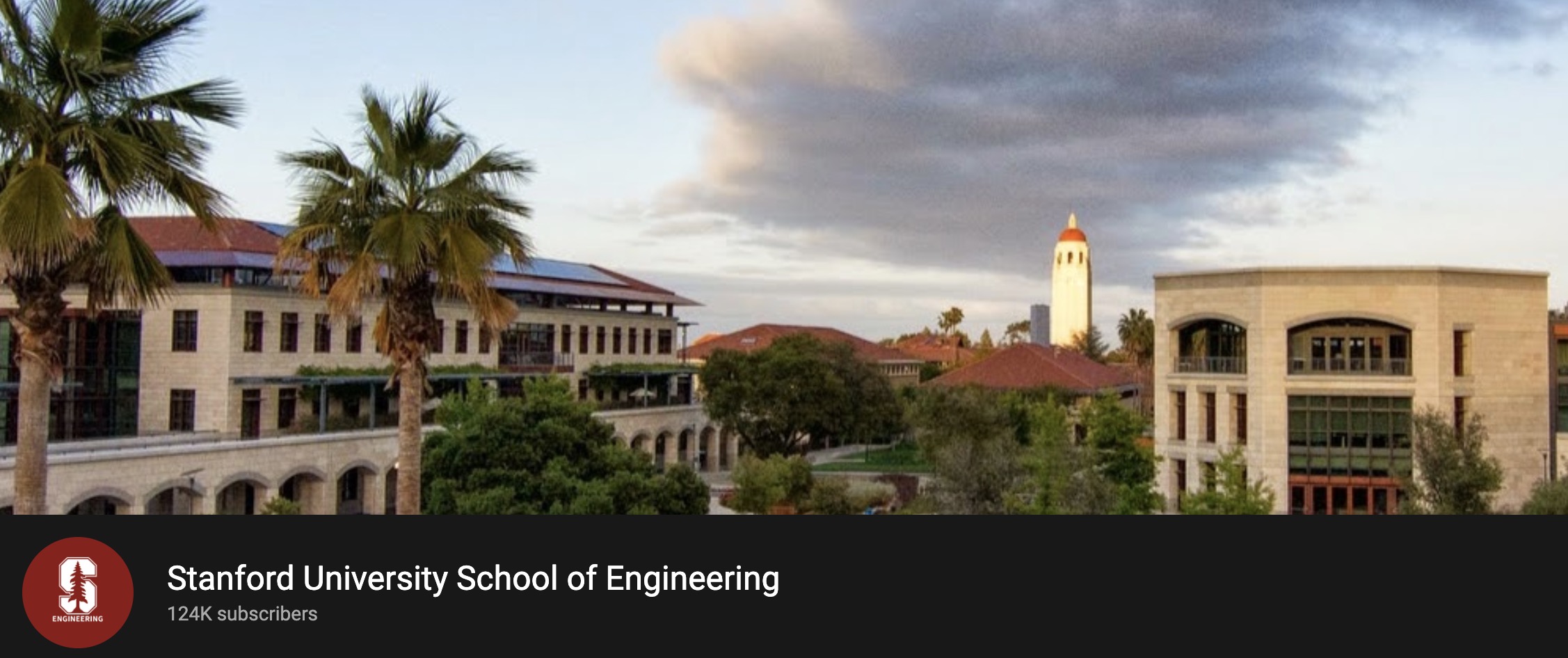
- Course lectures for CS221: Artificial Intelligence: Principles and Techniques by Percy Liang and Dorsa Sadigh.
- Autumn 2021 and Autumn 2019.
- Course lectures for CS229: Machine Learning (Autumn 2018) by Andrew Ng.
- Course lectures for CS224w: Machine Learning with Graphs (Winter 2021) by Jure Leskovec.
- Course lectures for CS234: Reinforcement Learning (Spring 2024) by Emma Brunskill.
- Winter 2019
- Course lectures for CS25: Transformers United (Fall 2021) by Div Garg, Steven Feng, and Rylan Schaeffer.
- Course lectures for Stanford Seminar: ML Explainability (2022) by Hima Lakkaraju.
CMU
- Course lectures for CMU CS 11-711: Advanced NLP by Graham Neubig.
- Topics:
- Basics of modern NLP techniques
- Multi-task, Multi-domain, multi-lingual learning
- Prompting + Sequence-to-sequence pre-training
- Interpreting and Debugging NLP Models
- Learning from Knowledge-bases
- Adversarial learning
- Course website.
- Spring 2024, Fall 2022 and Fall 2021.

- Course lectures for CMU CS 11-747: Neural Networks for NLP (Spring 2021) by Graham Neubig.
- To learn the latest neural network based techniques for NLP:
- Language Modeling
- Efficiency tricks
- Conditioned Generation
- Structured Prediction
- Model Interpretation
- Advanced Search Algorithms
- Course website.
- Spring 2021, Spring 2020, Spring 2019, Spring 2018 and Spring 2017.
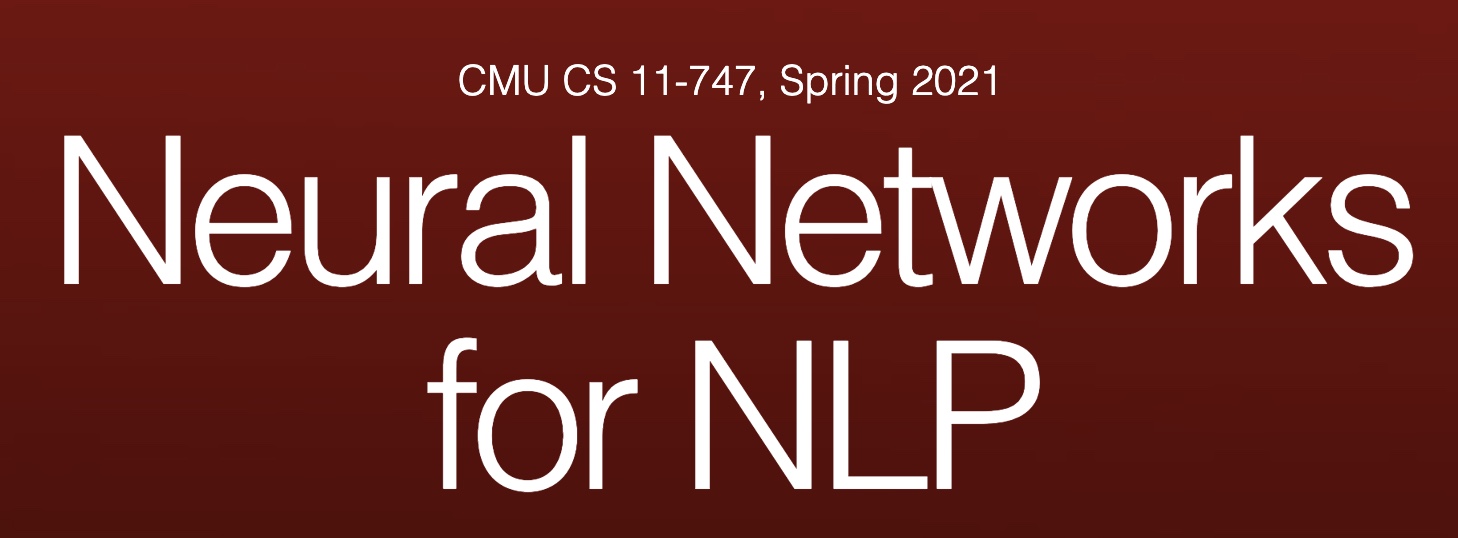
- Course lectures for CMU CS 11-737: Multilingual NLP (Spring 2022) by Graham Neubig.
- Topics:
- Typology
- Words, Part of Speech, and Morphology
- Advanced Text Classification
- Machine Translation
- Data Augmentation for MT
- Low Resource ASR
- Active Learning
- Course website.
- Spring 2022 and Spring 2020.

- Course lectures for CMU CS 11-785: Introduction to Deep Learning (Fall 2022) by Bhiksha Raj and Rita Singh.
- Course website.
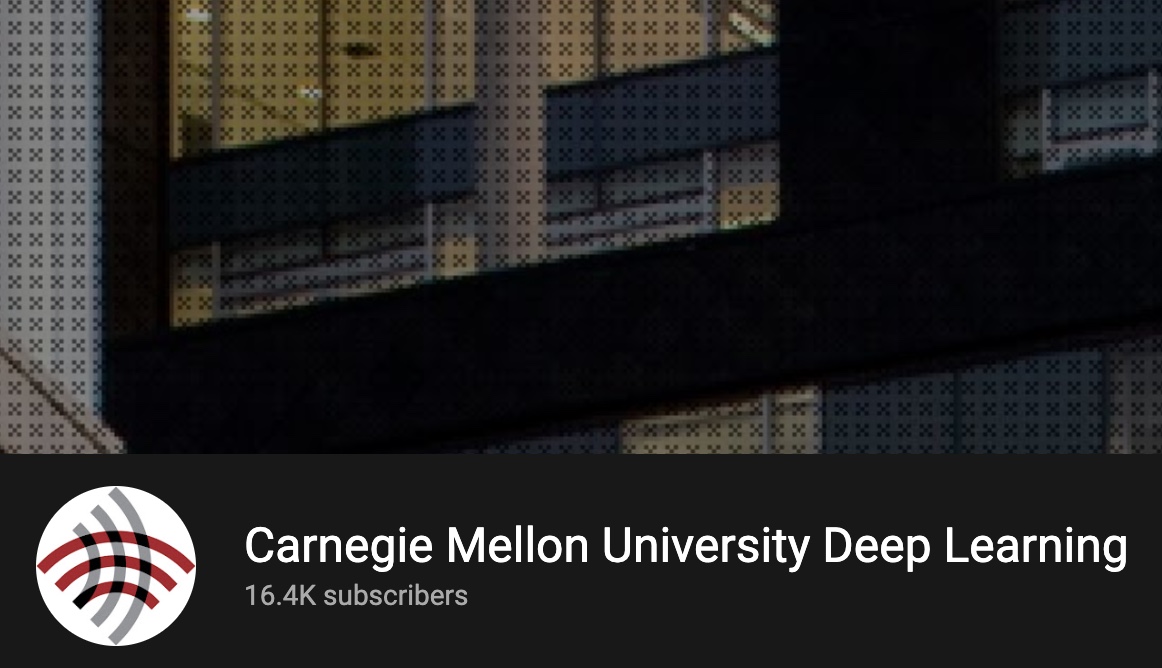
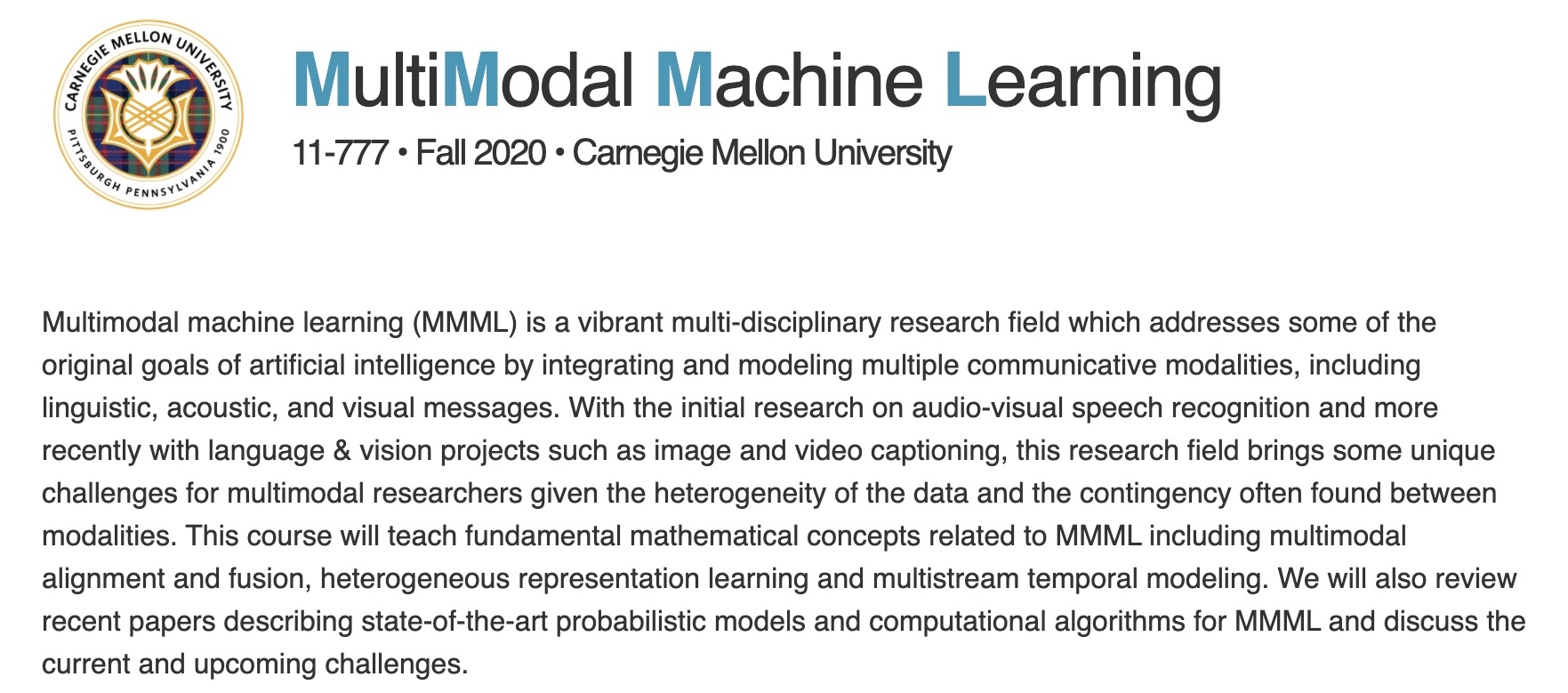
- Course lectures for CS 10-708 Probabilistic Graphical Models (Spring 2020) by Eric Xing.
- Many of the problems in artificial intelligence, statistics, computer systems, computer vision, natural language processing, and computational biology, among many other fields, can be viewed as the search for a coherent global conclusion from local information. The probabilistic graphical models framework provides an unified view for this wide range of problems, enables efficient inference, decision-making and learning in problems with a very large number of attributes and huge datasets. This graduate-level course will provide you with a strong foundation for both applying graphical models to complex problems and for addressing core research topics in graphical models.
- Course website.

- A low-resource natural language and speech processing bootcamp held by the Carnegie Mellon University Language Technologies Institute in May 2020. It comes in 8 parts, all with lecture videos and example exercises that you can do to expand your knowledge.
- Topics:
- NLP Tasks
- Linguistics - Phonology and Morphology
- Machine Translation
- Linguistics - Syntax and Morphosyntax
- Neural Representation Learning
- Multilingual NLP
- Speech Synthesis
- Speech Recognition
- Github repo.

MIT
- Official YouTube channel of MIT OCW.
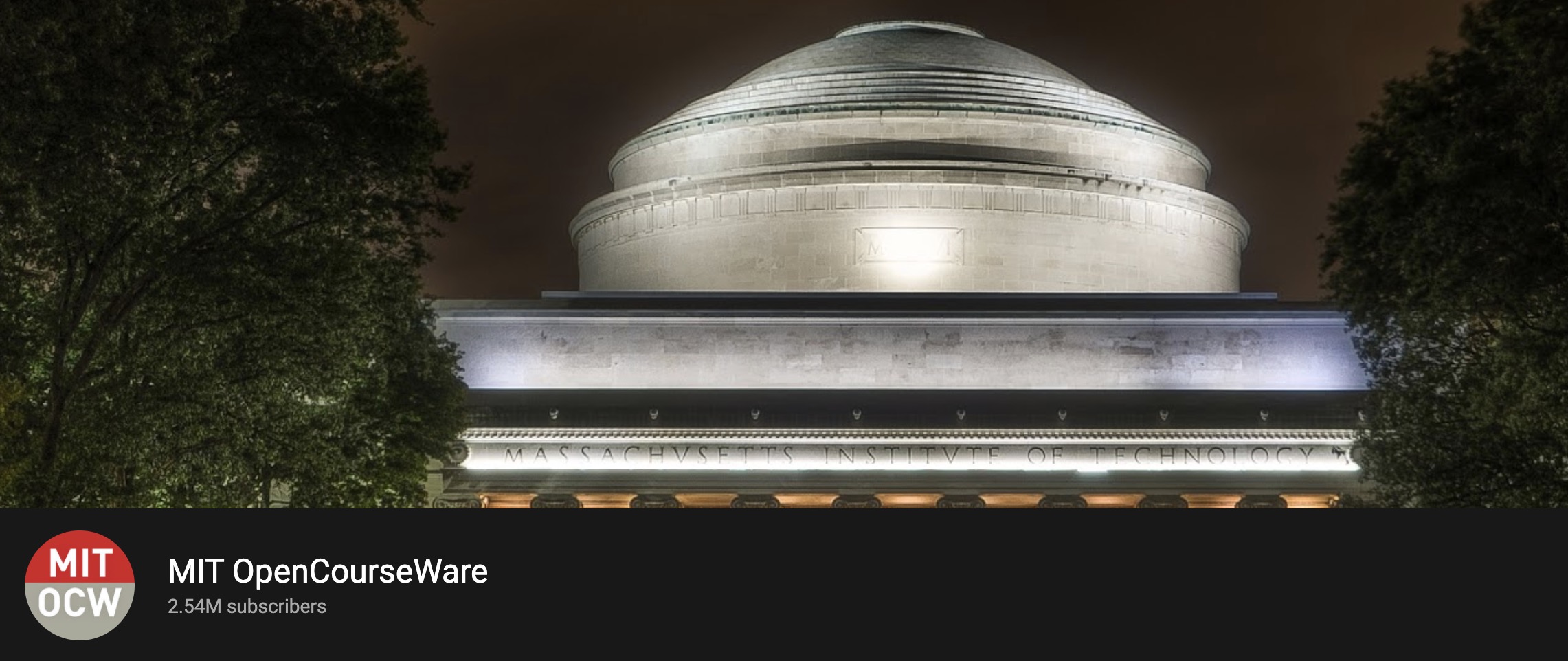
- This course introduces students to the basic knowledge representation, problem solving, and learning methods of artificial intelligence.
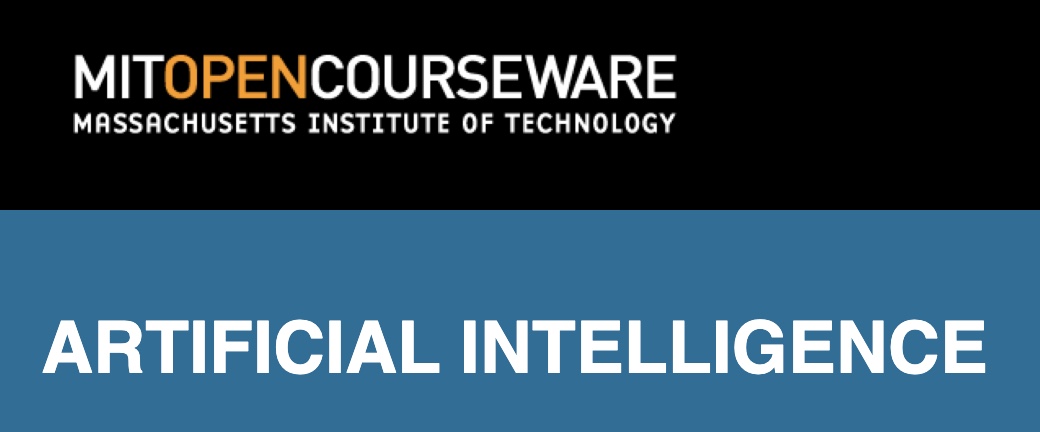

- Course lectures for MIT 6.S191: Introduction to Deep Learning by Alexander Amini and Ava Soleimany.

- Course lectures for MIT 6.S192: Deep Learning for Art, Aesthetics, and Creativity.
- Course website.
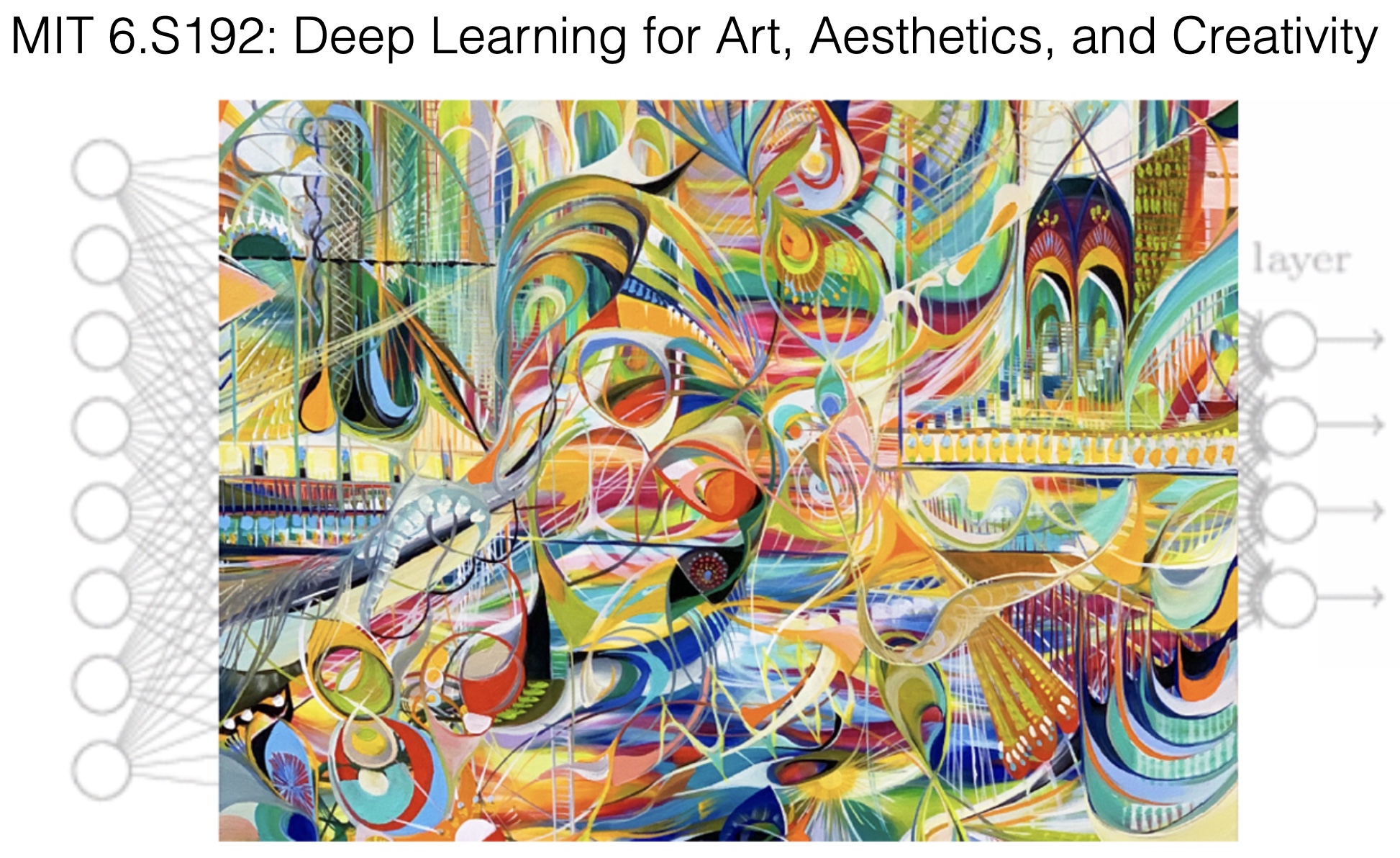
- Course lectures for MIT 6.5940: TinyML and Efficient Deep Learning Computing.
- This course will introduce efficient AI computing techniques that enable powerful deep learning applications on resource-constrained devices. Topics include model compression, pruning, quantization, neural architecture search, distributed training, data/model parallelism, gradient compression, and on-device fine-tuning.
- Course website
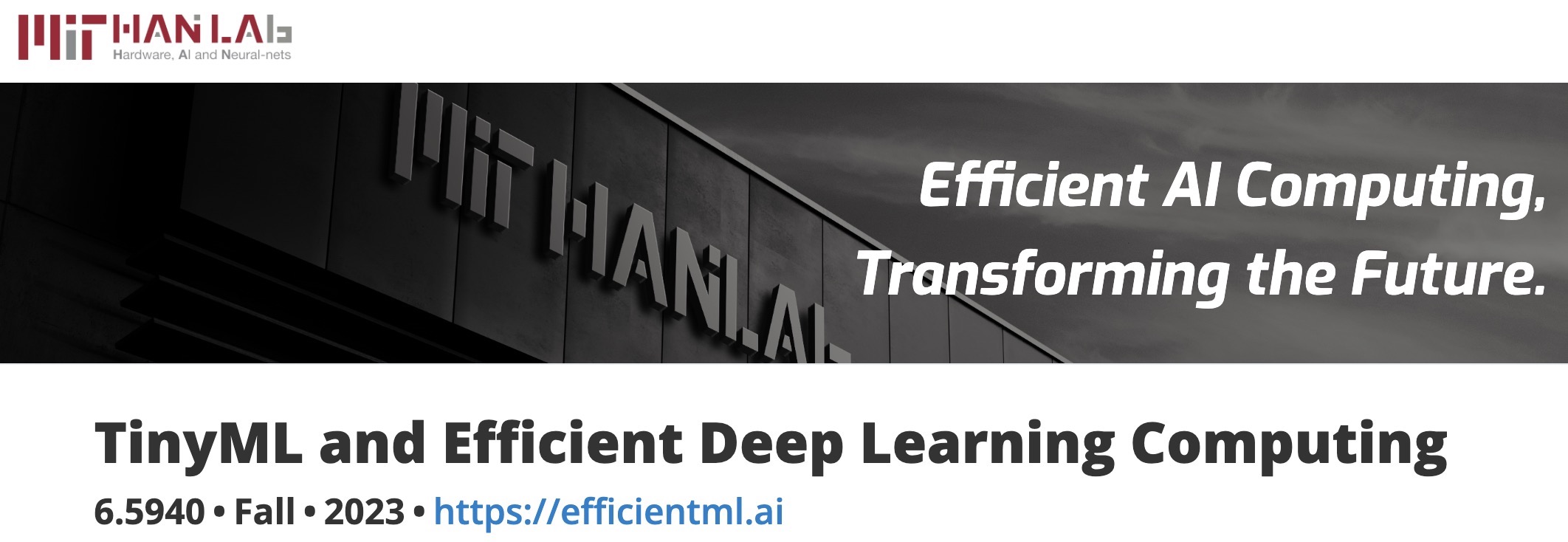 .
.
- Official YouTube channel of DeepMind.
- Recommended playlists:

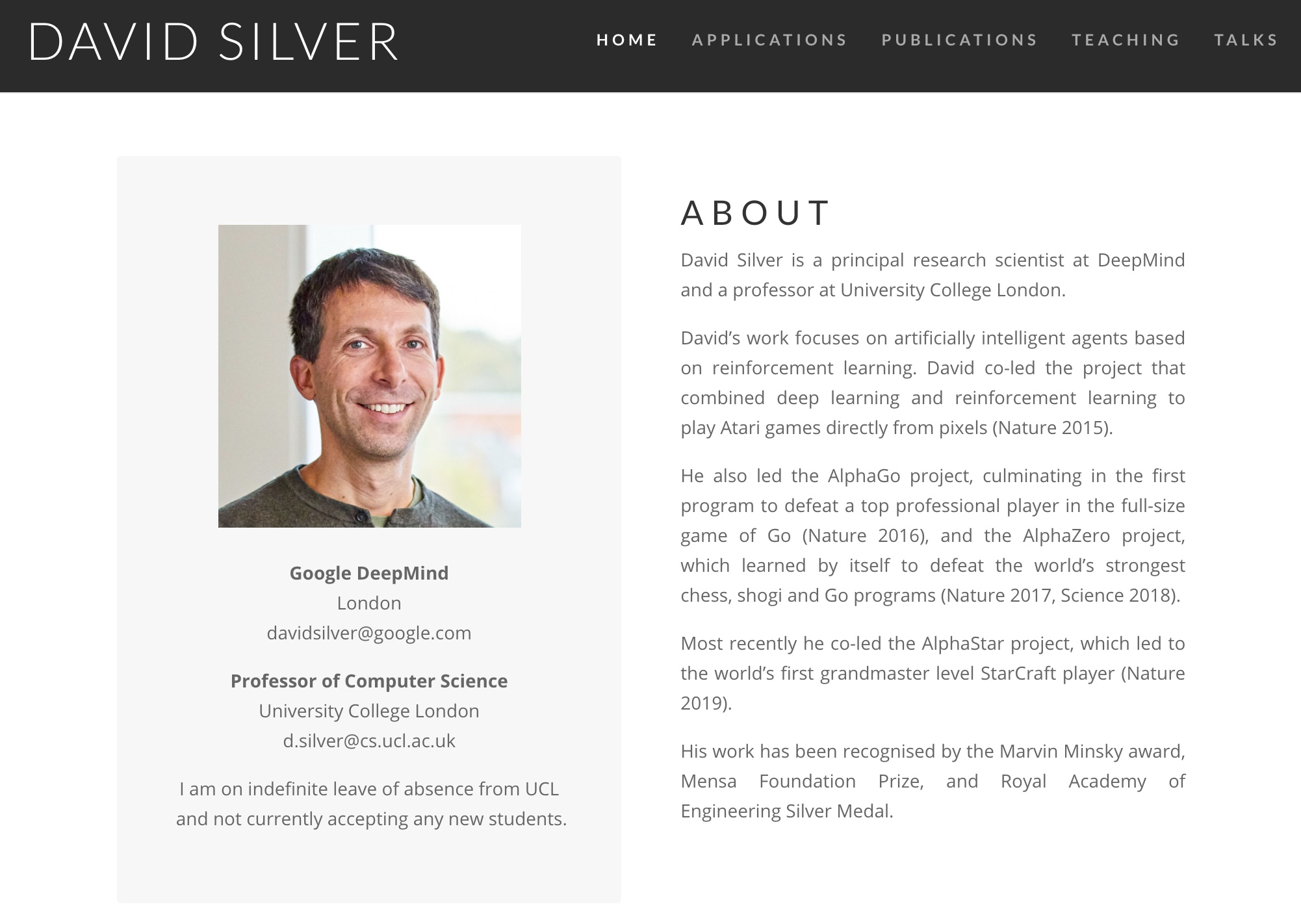
- Course lectures for NYU’s Deep Learning (with PyTorch) by Alfredo Canziani.
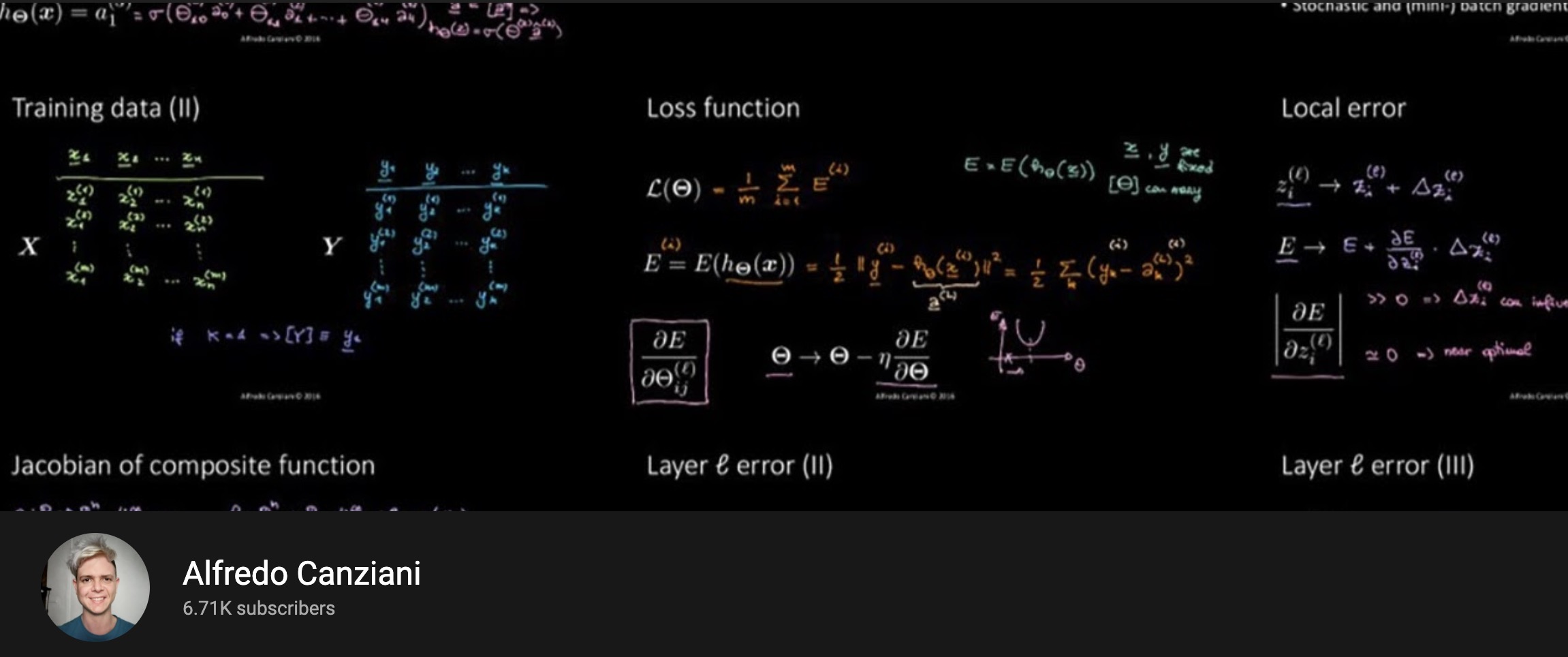
- Classical Computer Vision by Mubarak Shah from the University of Central Florida.
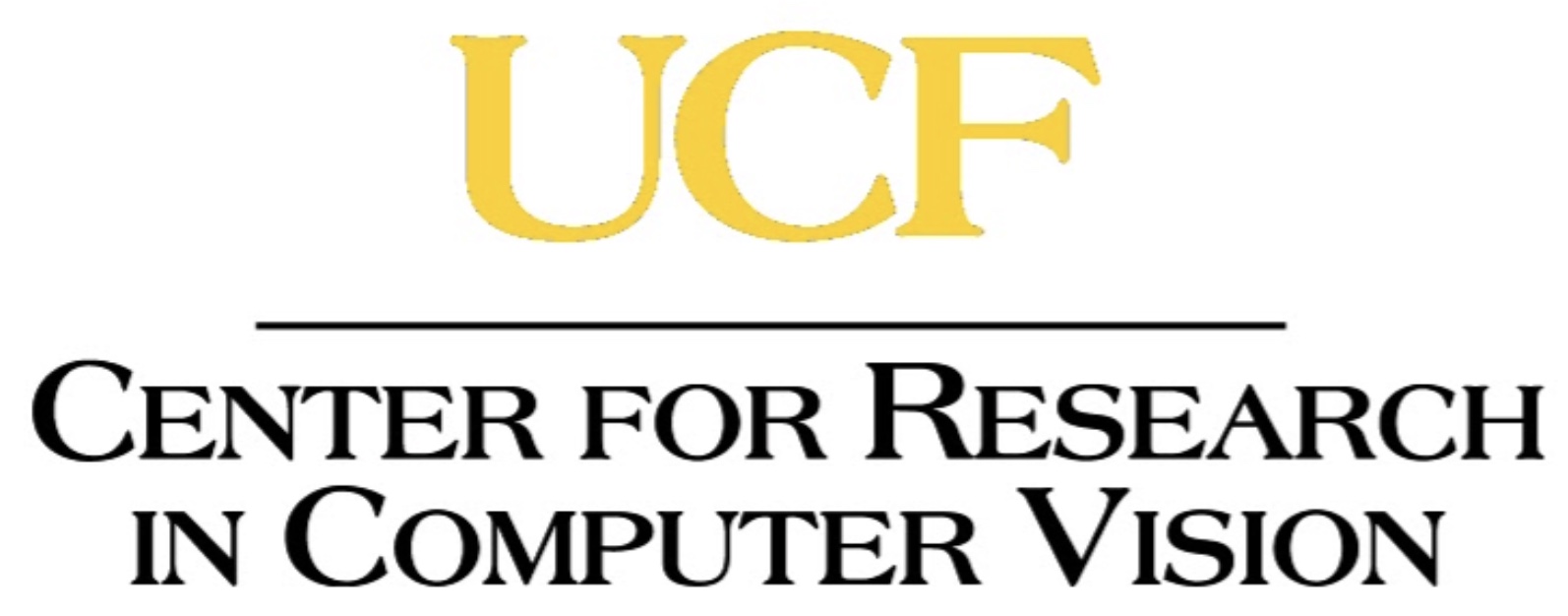
- Course lectures for CS480/680: Intro to Machine Learning (Spring 2019) by Pascal Poupart from the University of Waterloo.

- Course lectures for CS685: Advanced Natural Language Processing (Spring 2022) by Mohit Iyyer from the University of Massachusetts Amherst.
- Topics:
- Attention Mechanisms
- Transformers
- BERT
- Question Answering
- Model Distillation
- Vision + Language
- Ethics in NLP
- Commonsense Reasoning

- A course on Geometric Deep Learing GDL100 delivered as part of the African Masters in Machine Intelligence (AMMI), which closely follows the contents of the GDL proto-book.
- Slides.
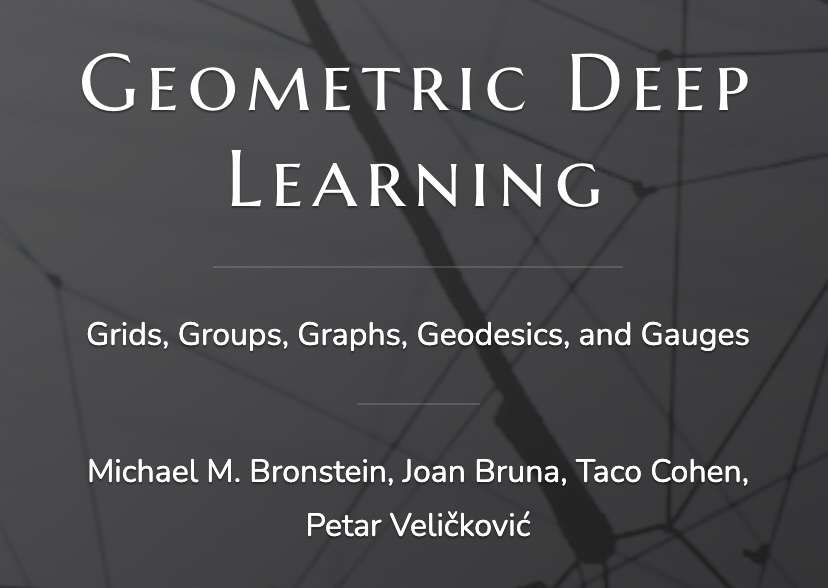
- Course lectures for Cornell CS 5787 Applied Machine Learning by Volodymyr Kuleshov from Cornell Tech.
- Learn and apply key concepts of modeling, analysis and validation from Machine Learning, Data Mining and Signal Processing to analyze and extract meaning from data. Implement algorithms and perform experiments on images, text, audio and mobile sensor measurements. Gain working knowledge of supervised and unsupervised techniques including classification, regression, clustering, feature selection, association rule mining and dimensionality reduction.
- Course website.

- Building an ML-powered product is much more than just training a model. FSDL brings people together to learn and share best practices for the full stack: from problem selection, data management, and picking a GPU to web deployment, monitoring, and retraining.
- Taught at UC Berkeley and University of Washington.
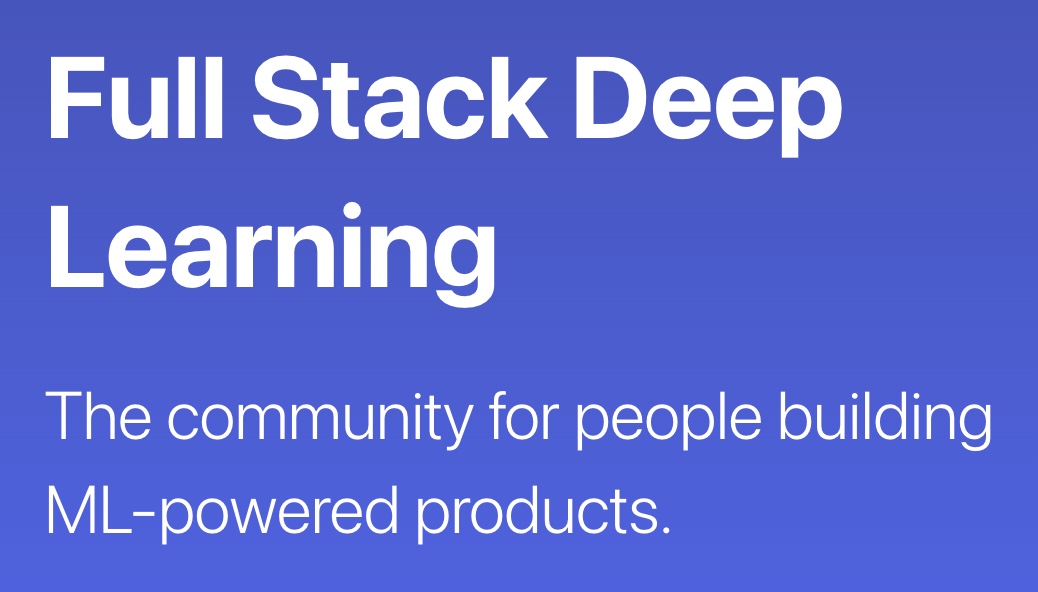
- Learn about different NLP concepts and how to apply language models and Transformers to NLP:
- Transfer learning
- BPE tokenization
- Batching inputs
- Fine-tuning models
- Text embeddings and semantic search
- Model evaluation

- This course covers topics such as how to:
- Build and train deep learning models for computer vision, natural language processing, tabular analysis, and collaborative filtering problems
- Create random forests and regression models
- Deploy models
- Use PyTorch, the world’s fastest growing deep learning software, plus popular libraries like fastai and Hugging Face
- There are 9 lessons, and each lesson is around 90 minutes long. The course is based on our 5-star rated book, which is freely available online.
- Course website; course book.

- FreeCodeCamp released a new course for deep learning and machine learning with PyTorch to YouTube by Daniel Bourke. The course is for beginners, and it contains 24 hours of video, and it covers the following topics:
- PyTorch Fundamentals
- PyTorch Workflow
- Neural Network Classification
- Computer Vision
- Custom Datasets
- Video; code; course materials
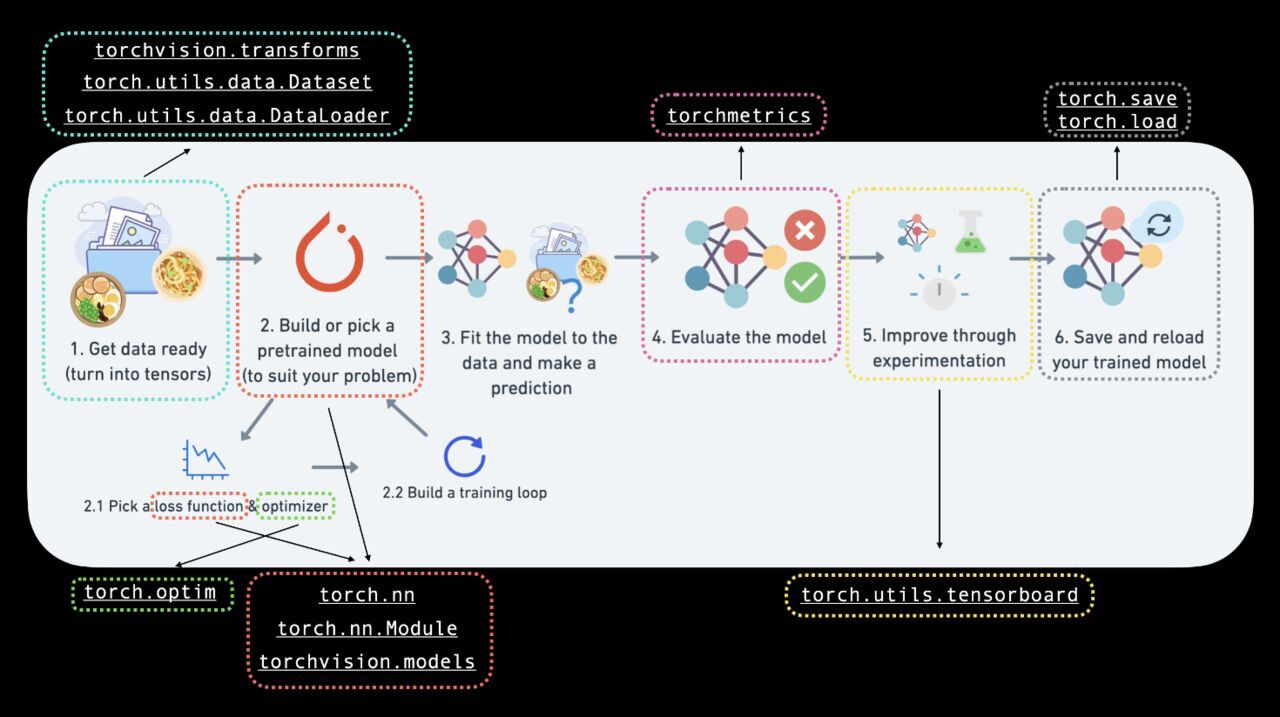
- A course on neural networks (with YouTube videos and Jupyter notebooks) that starts at the basics and covers topics such as:
- Backpropagation and training of neural networks.
- Implement a bigram character-level language model, which will be further complexified in follow-up videos into a modern Transformer language model, like GPT.
- Implement a multilayer perceptron (MLP) character-level language model: introduces many basics of machine learning (e.g. model training, learning rate tuning, hyperparameters, evaluation, train/dev/test splits, under/overfitting, etc.).
- The specialty of this course offering compared to others is that you will live-code and train neural networks together with the instructor.
- Special lecture: The Busy Person’s Intro to Large Language Models; Slides.
- State of GPT.

- A 3-hour video by Stephen Wolfram as an explainer video on ChatGPT.
MOOCs
Coursera
- The Machine Learning Specialization is a foundational online program created in collaboration between DeepLearning.AI and Stanford Online. This beginner-friendly program will teach you the fundamentals of machine learning and how to use these techniques to build real-world AI applications.
- This Specialization is taught by Andrew Ng, an AI visionary who has led critical research at Stanford University and groundbreaking work at Google Brain, Baidu, and Landing.AI to advance the AI field.
- Includes the following courses:
- Supervised Machine Learning: Regression and Classification
- Advanced Learning Algorithms
- Unsupervised Learning, Recommenders, Reinforcement Learning
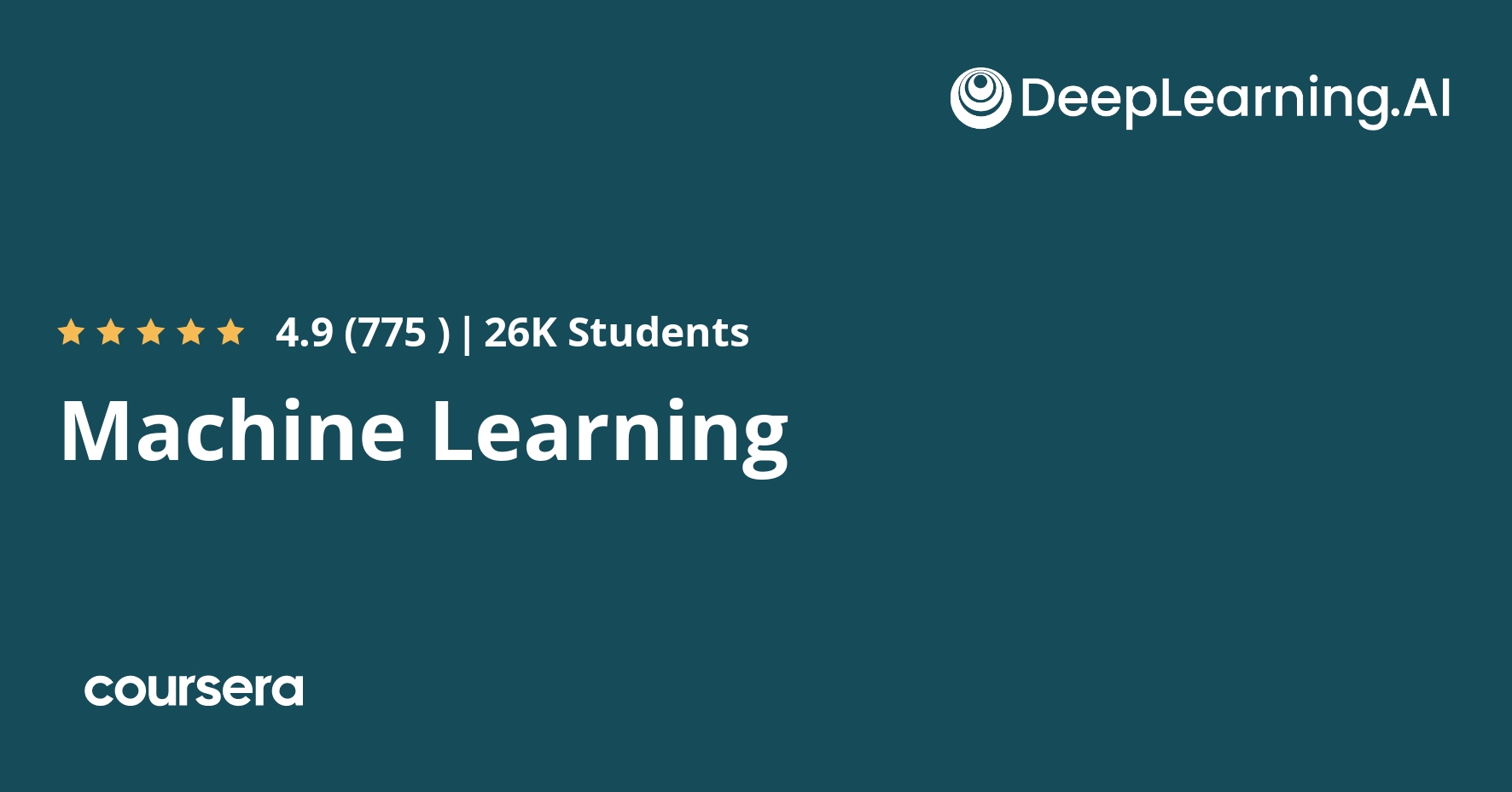
- The Deep Learning Specialization is a foundational program that will help you understand the capabilities, challenges, and consequences of deep learning and prepare you to participate in the development of leading-edge AI technology.
- In this Specialization, you will build and train neural network architectures such as Convolutional Neural Networks, Recurrent Neural Networks, LSTMs, Transformers, and learn how to make them better with strategies such as Dropout, BatchNorm, Xavier/He initialization, and more. Get ready to master theoretical concepts and their industry applications using Python and TensorFlow and tackle real-world cases such as speech recognition, music synthesis, chatbots, machine translation, natural language processing, and more.
- Includes the following courses:
- Neural Networks and Deep Learning
- Improving Deep Neural Networks: Hyperparameter Tuning, Regularization and Optimization
- Structuring Machine Learning Projects
- Convolutional Neural Networks
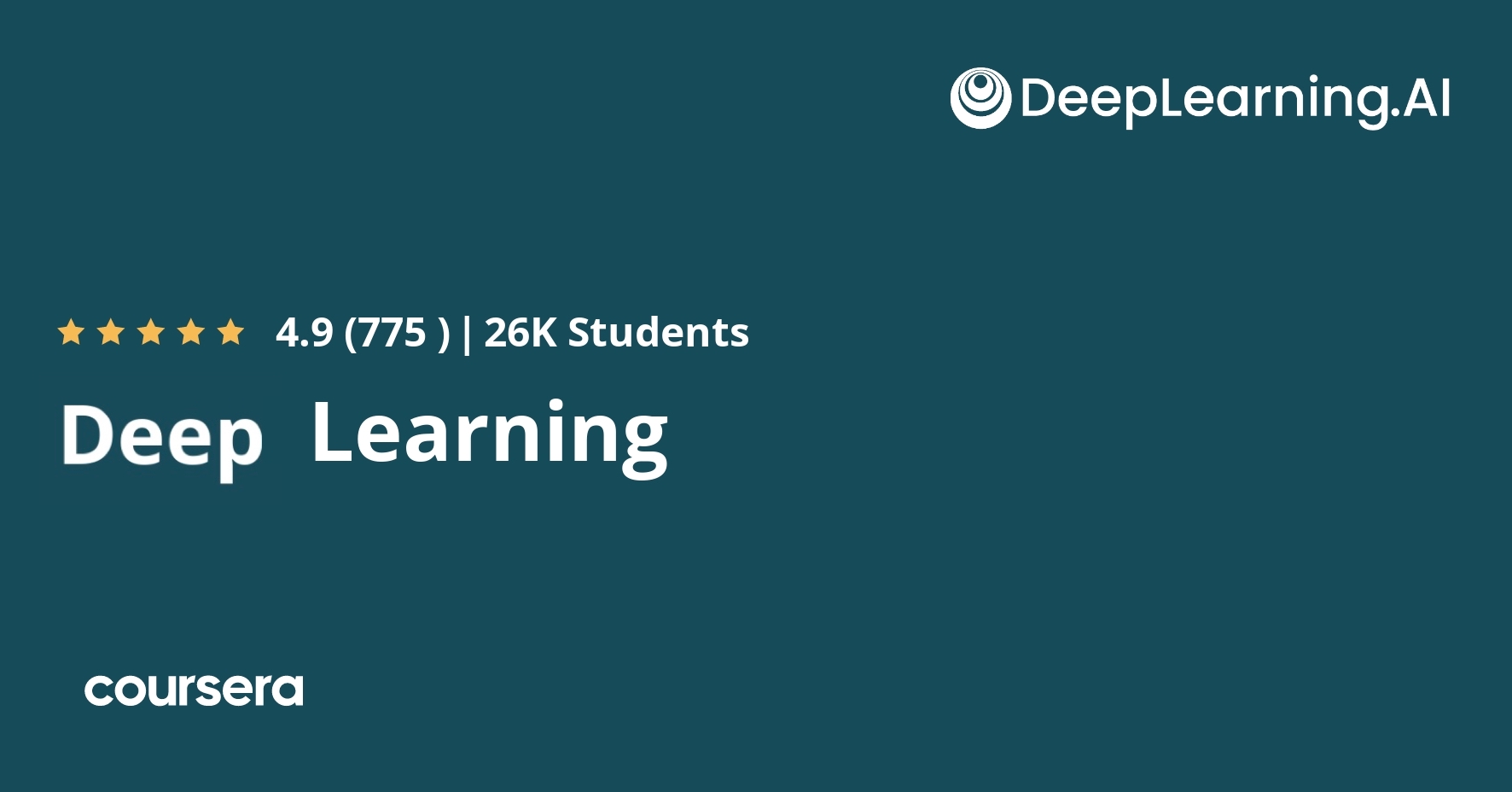
- The Machine Learning Engineering for Production (MLOps) Specialization covers how to conceptualize, build, and maintain integrated systems that continuously operate in production. In striking contrast with standard machine learning modeling, production systems need to handle relentless evolving data. Moreover, the production system must run non-stop at the minimum cost while producing the maximum performance. In this Specialization, you will learn how to use well-established tools and methodologies for doing all of this effectively and efficiently.
- In this Specialization, you will become familiar with the capabilities, challenges, and consequences of machine learning engineering in production. By the end, you will be ready to employ your new production-ready skills to participate in the development of leading-edge AI technology to solve real-world problems.
- Includes the following courses:
- Introduction to Machine Learning in Production
- Machine Learning Data Lifecycle in Production
- Machine Learning Modeling Pipelines in Production
- Deploying Machine Learning Models in Production
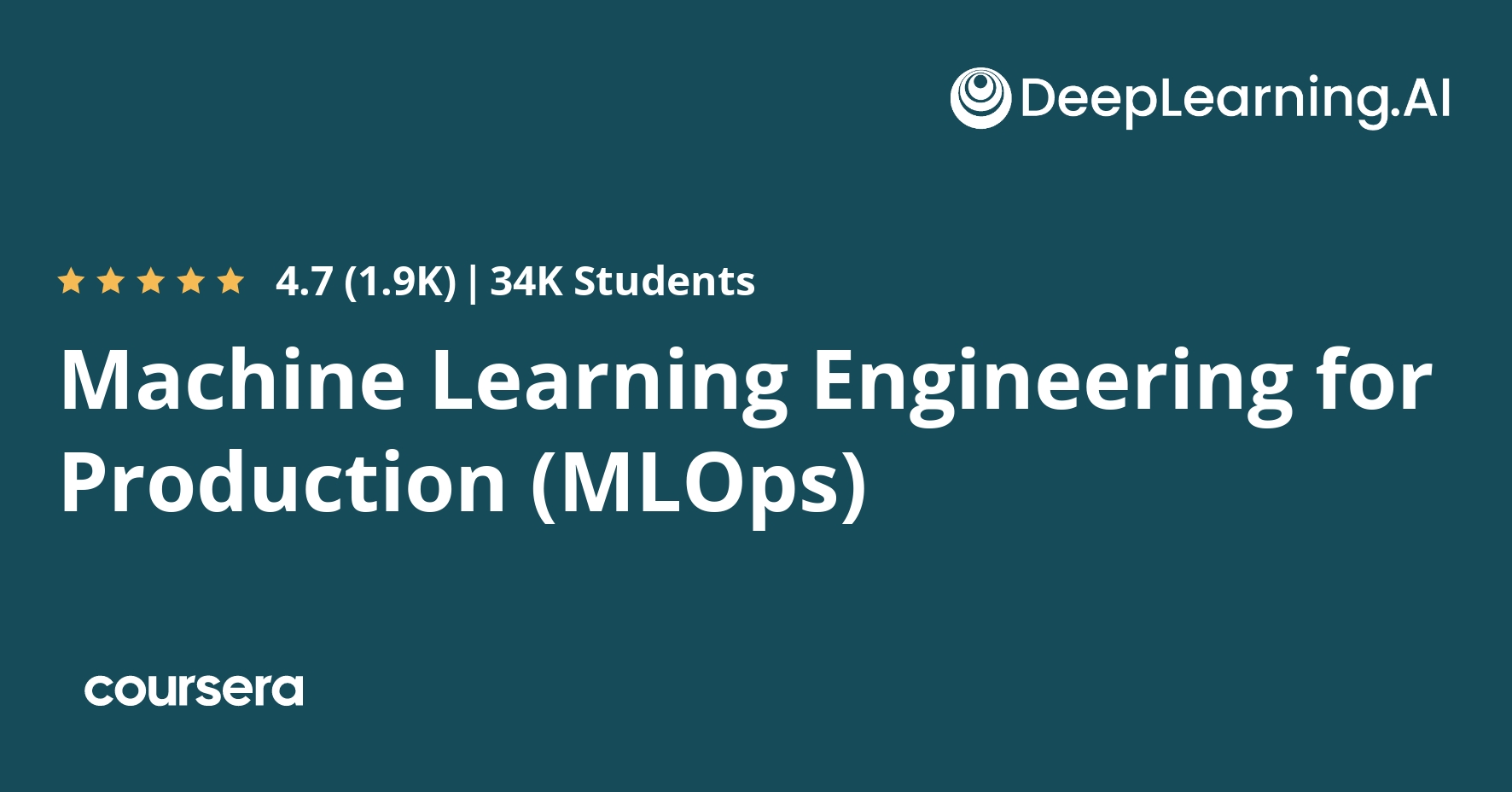
- The DeepLearning.AI Generative Adversarial Networks (GANs) Specialization provides an exciting introduction to image generation with GANs, charting a path from foundational concepts to advanced techniques through an easy-to-understand approach. It also covers social implications, including bias in ML and the ways to detect it, privacy preservation, and more.
- Build a comprehensive knowledge base and gain hands-on experience in GANs. Train your own model using PyTorch, use it to create images, and evaluate a variety of advanced GANs.
- Includes the following courses:
- Build Basic Generative Adversarial Networks (GANs)
- Build Better Generative Adversarial Networks (GANs)
- Apply Generative Adversarial Networks (GANs)
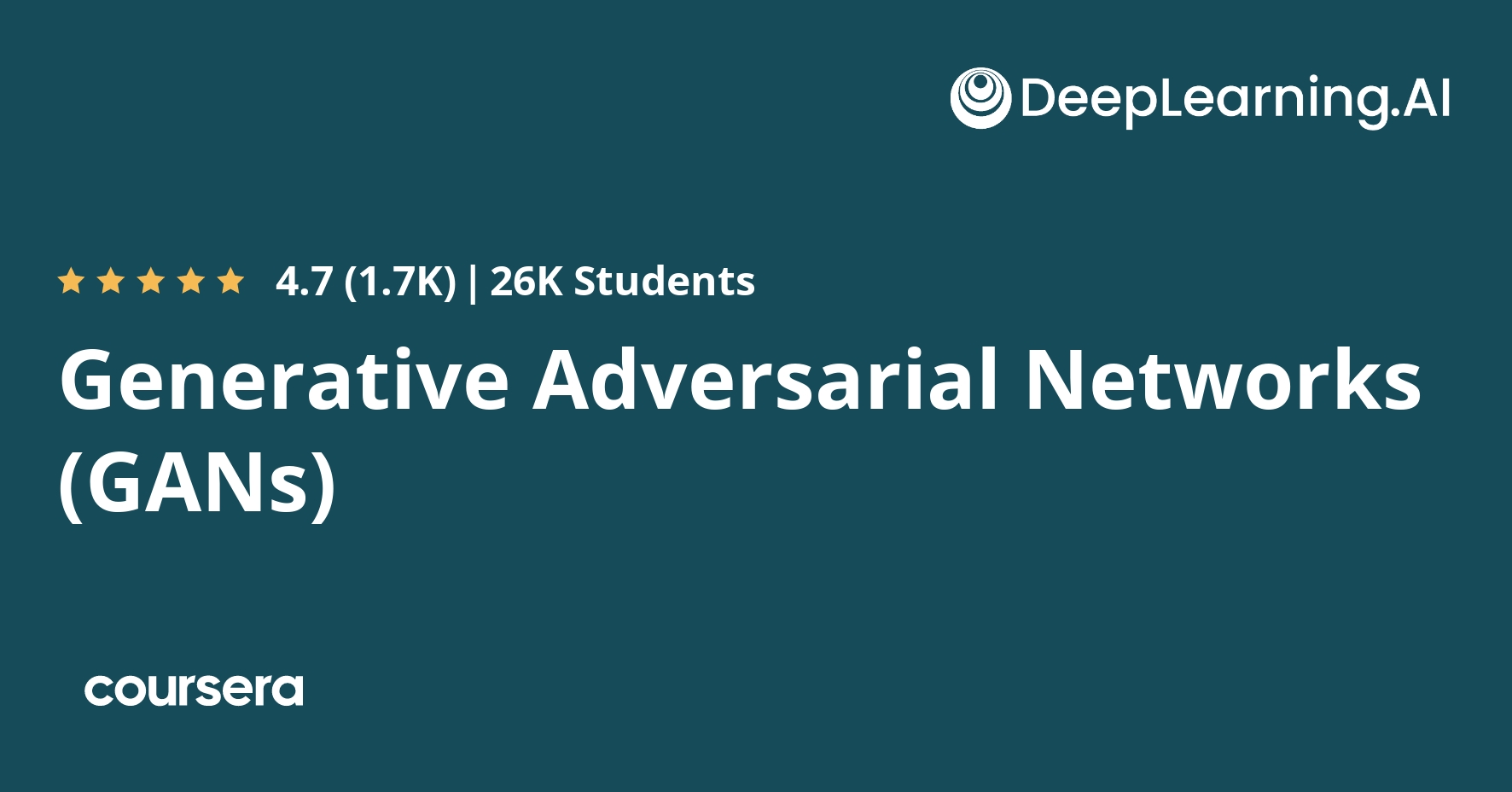
- AI is transforming the practice of medicine. It’s helping doctors diagnose patients more accurately, make predictions about patients’ future health, and recommend better treatments. This three-course Specialization will give you practical experience in applying machine learning to concrete problems in medicine.
- Includes the following courses:
- AI for Medical Diagnosis
- AI for Medical Prognosis
- AI for Medical Treatment
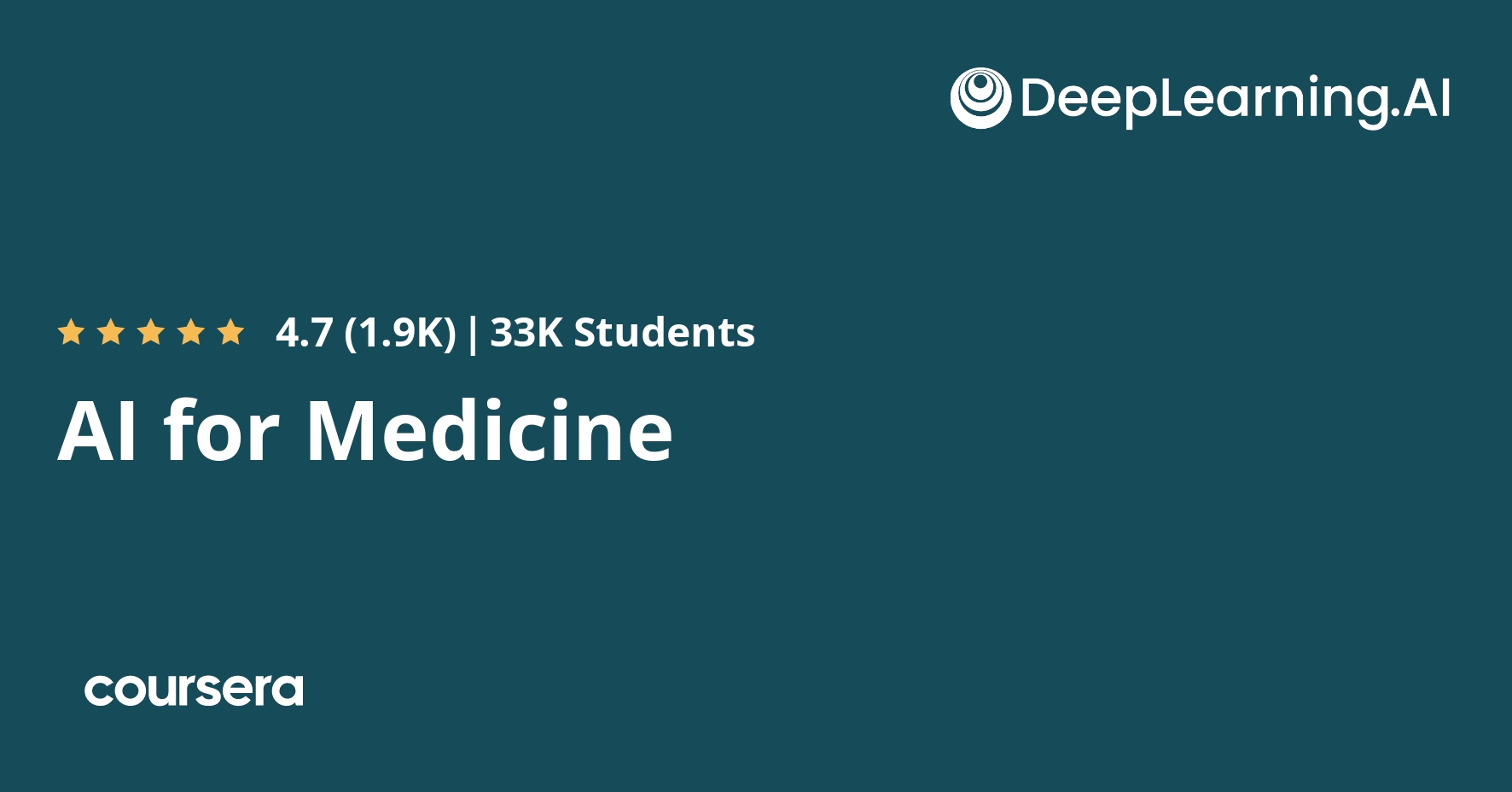
Udacity Nanodegrees/Courses
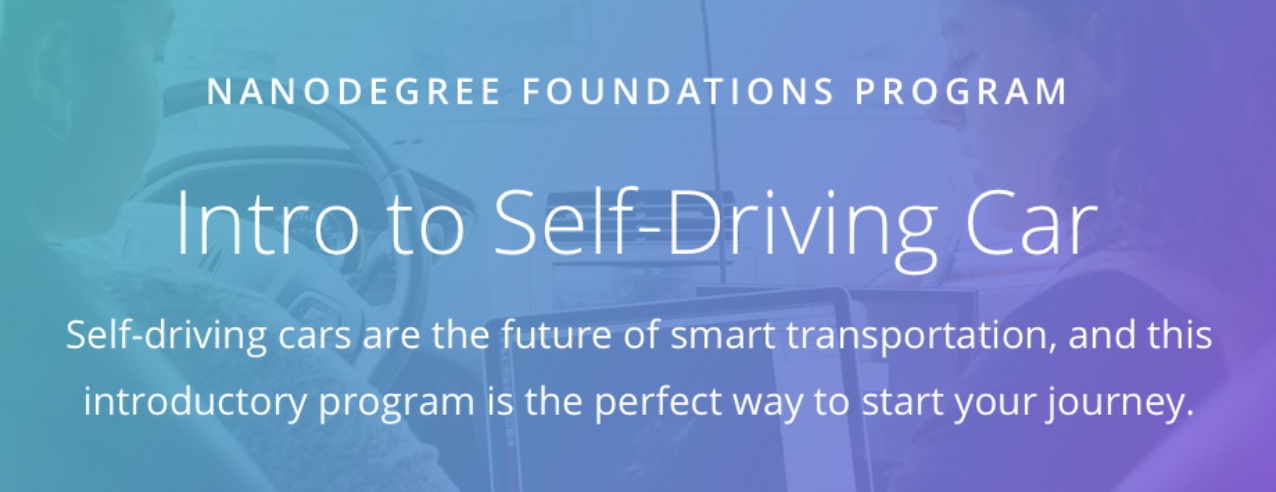
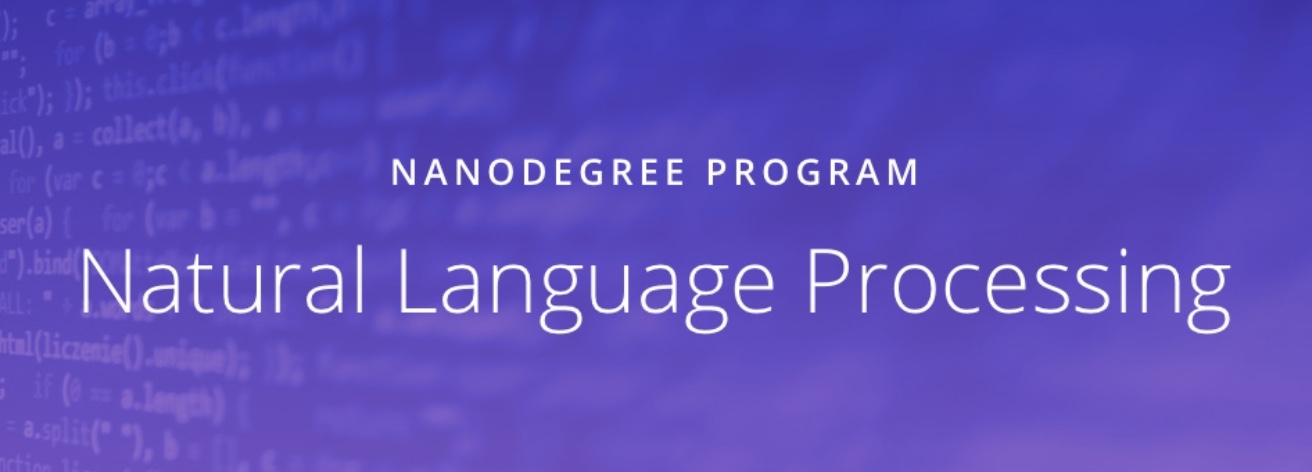
Udemy
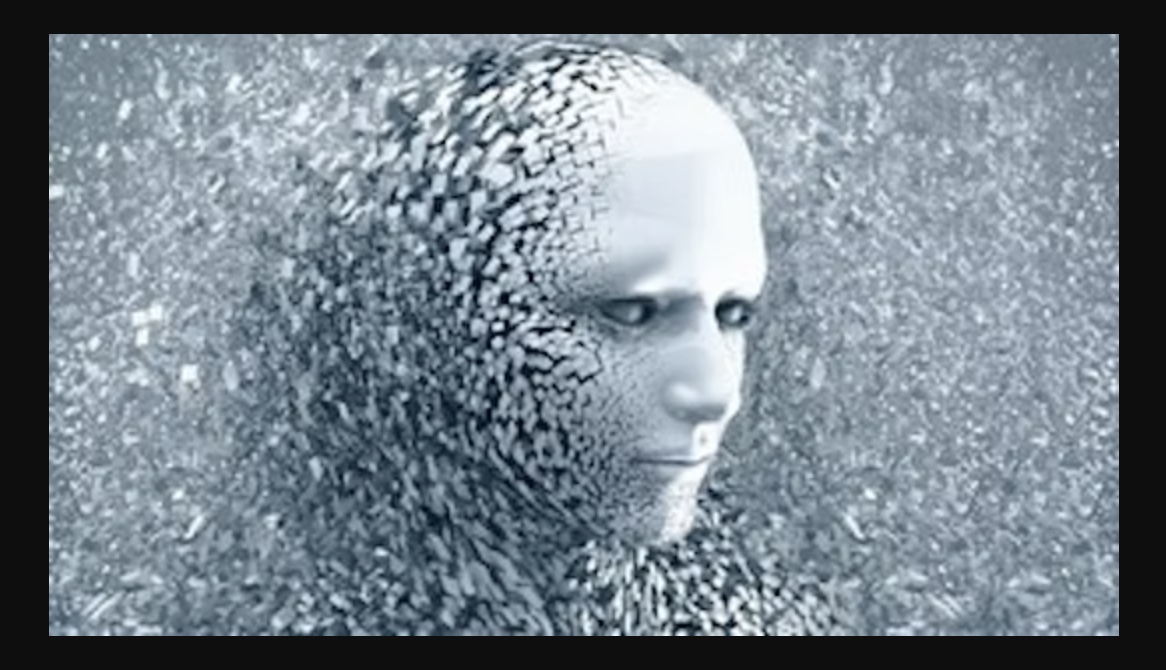
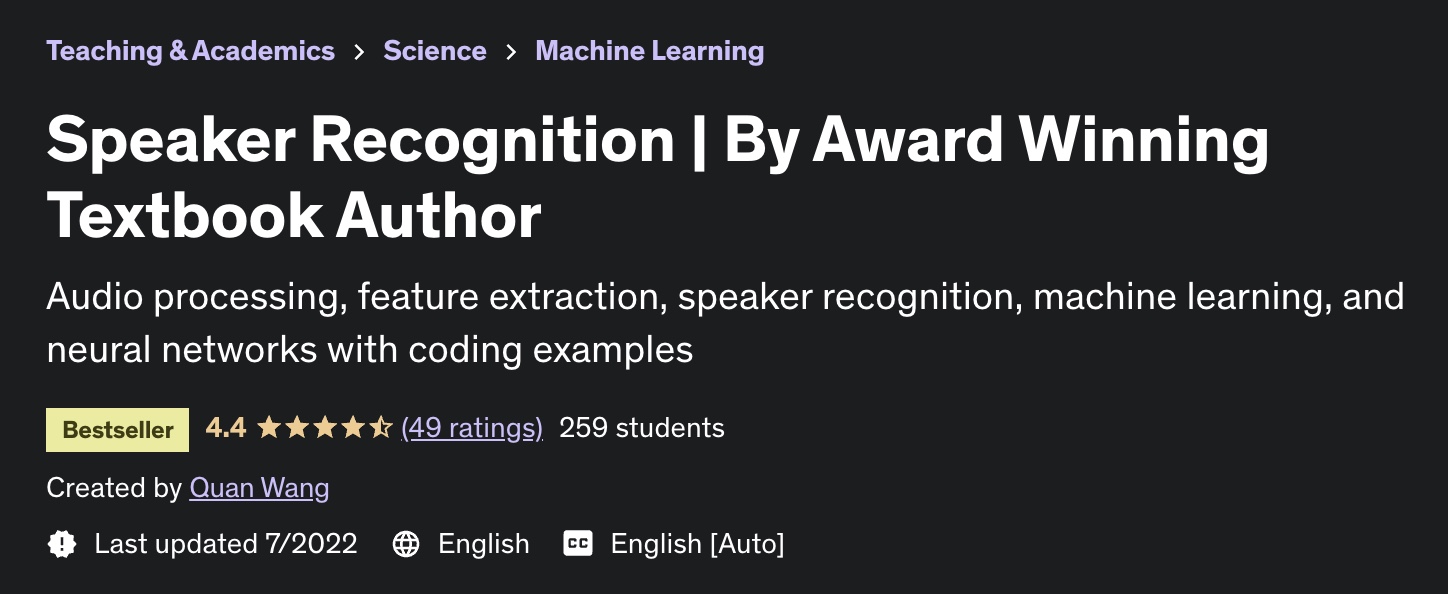
Online Degrees/Certifications
- This graduate program provides you with a deep dive into the principles and methodologies of AI. Selecting from a variety of electives, you can choose a path tailored to your interests, including natural language processing, vision, data mining, and robotics.
- Courses are taught by prominent Stanford faculty whose research is at the forefront of emerging AI developments, including Andrew Ng, Christopher Manning, Chelsea Finn, Percy Liang, Jeanette Bohg.
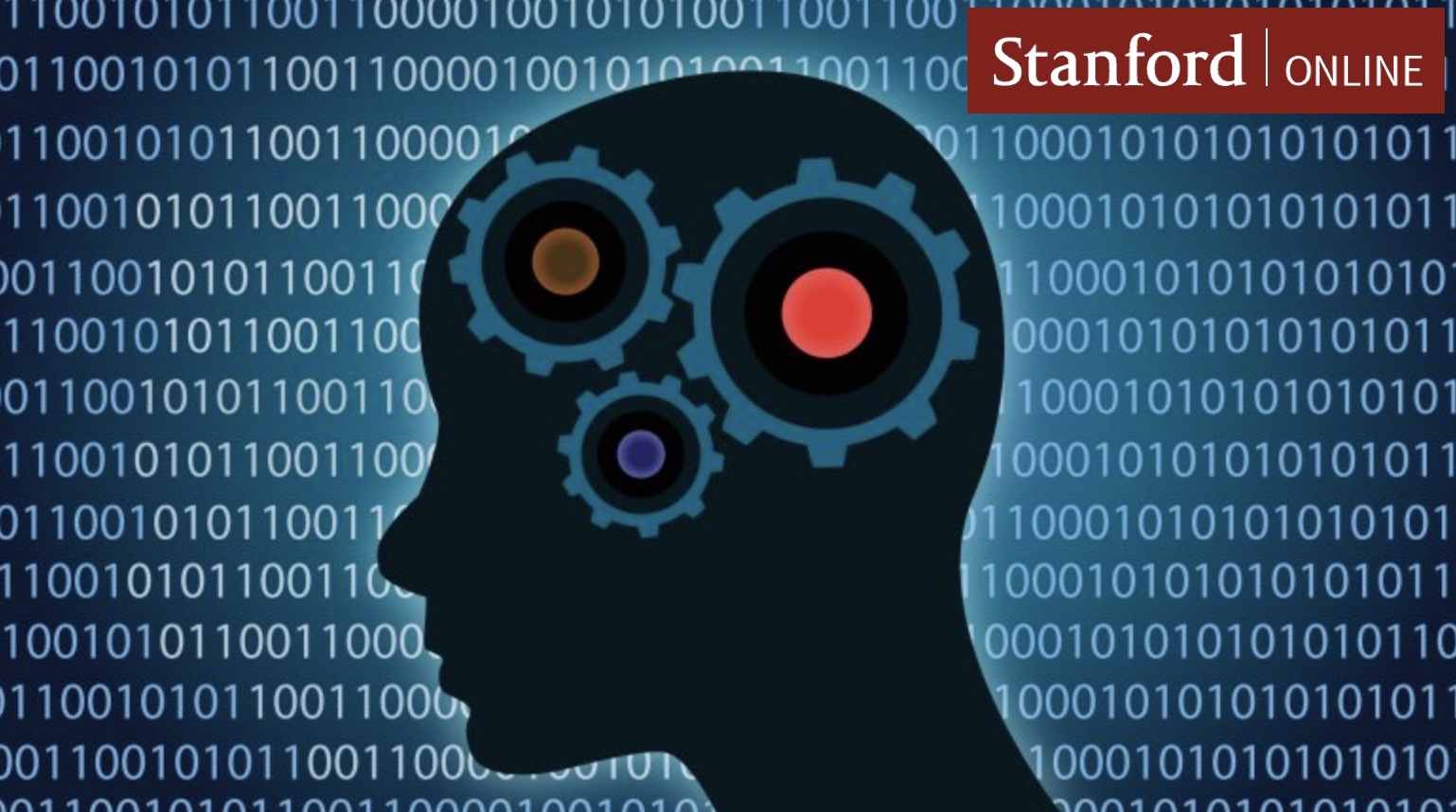
Georgia Tech
- The first online Master of Science in Computer Science from an accredited university that students can earn exclusively through the “massive online” format and for a fraction of the normal cost.

Columbia
- The ColumbiaX MicroMasters Program in Artificial Intelligence is a professional and academic credential offered by edX.org for online learners. These Masters level courses include video lectures, quizzes, programming assignments, peer-reviewed assignments, and community discussion forums. Learners who successfully complete all courses in the MicroMasters program on edX receive a MicroMasters program certificate that they can share on their resume and LinkedIn.
- Learners who successfully complete all four courses in the AI MicroMasters program and receive a certificate for each course, will earn an edX MicroMasters program certificate from ColumbiaX.

Caltech
- Accelerate your career with a 6 month AI & ML bootcamp which delivers a high-engagement learning experience, leveraging Caltech’s academic excellence and IBM’s industry prowess in the field of AI and ML.
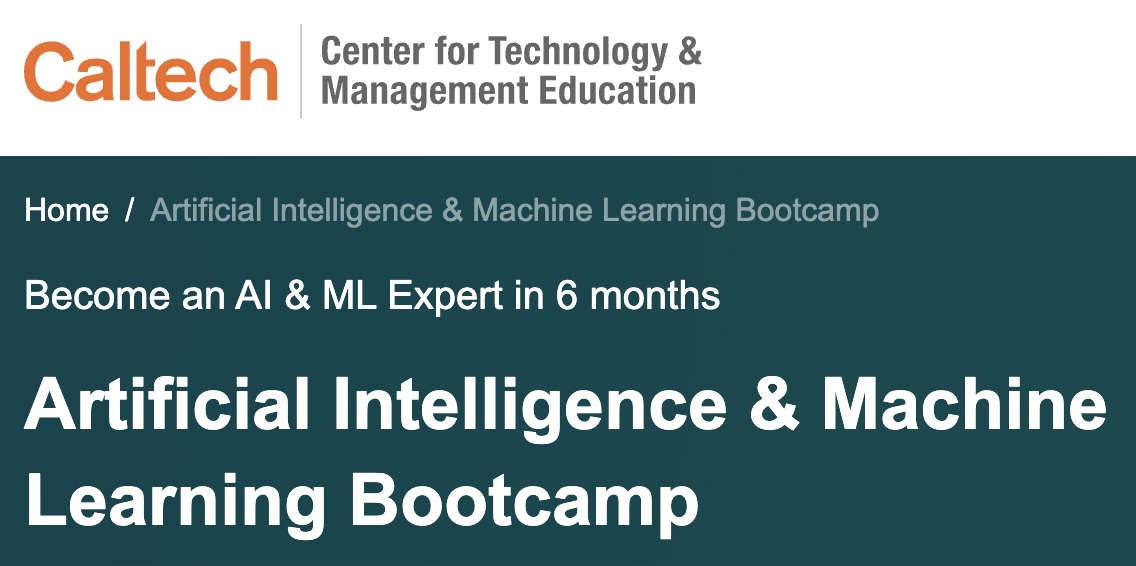
UT Austin
- Gain Industry-valued skills with the PG Program in Artificial Intelligence & Machine Learning: Business Applications.

Wharton Online
- This AI program with Wharton Online is designed for participants seeking a competitive edge in emerging business technologies. The program delivers a comprehensive understanding of big data, AI, and machine learning.

Drexel University
- Drexel’s 45-credit Master of Science (MS) in Artificial Intelligence and Machine Learning (MSAIML) program offers students an opportunity to learn a variety of foundational, computational and applied topics in artificial intelligence and machine learning.

Northwestern University
- The Artificial Intelligence Certificate of Advanced Graduate Study has been designed to ensure that students who successfully complete the certificate can:
- Utilize methods of machine learning and deep learning to build and run analytical models and neural networks;
- Apply natural language processing techniques to speech recognition, semantic processing, text classification, and sentiment analysis;
- Process image data for visual exploration, image classification, remote sensing, and facial recognition;
- Utilize automated systems for robotics applications with special emphasis on reinforcement learning and the training of robots to mimic human behavior.

University of South Carolina
- The Artificial Intelligence Graduate Certificate is a 12-credit hour program comprised of core and elective courses.

YouTube channels
3Blue1Brown by Grant Sanderson
- 3Blue1Brown, by Grant Sanderson, explains concepts using a combination of math and entertainment.
- The goal is for explanations to be driven by animations and for difficult problems to be made simple with changes in perspective.
- New videos every Sunday.
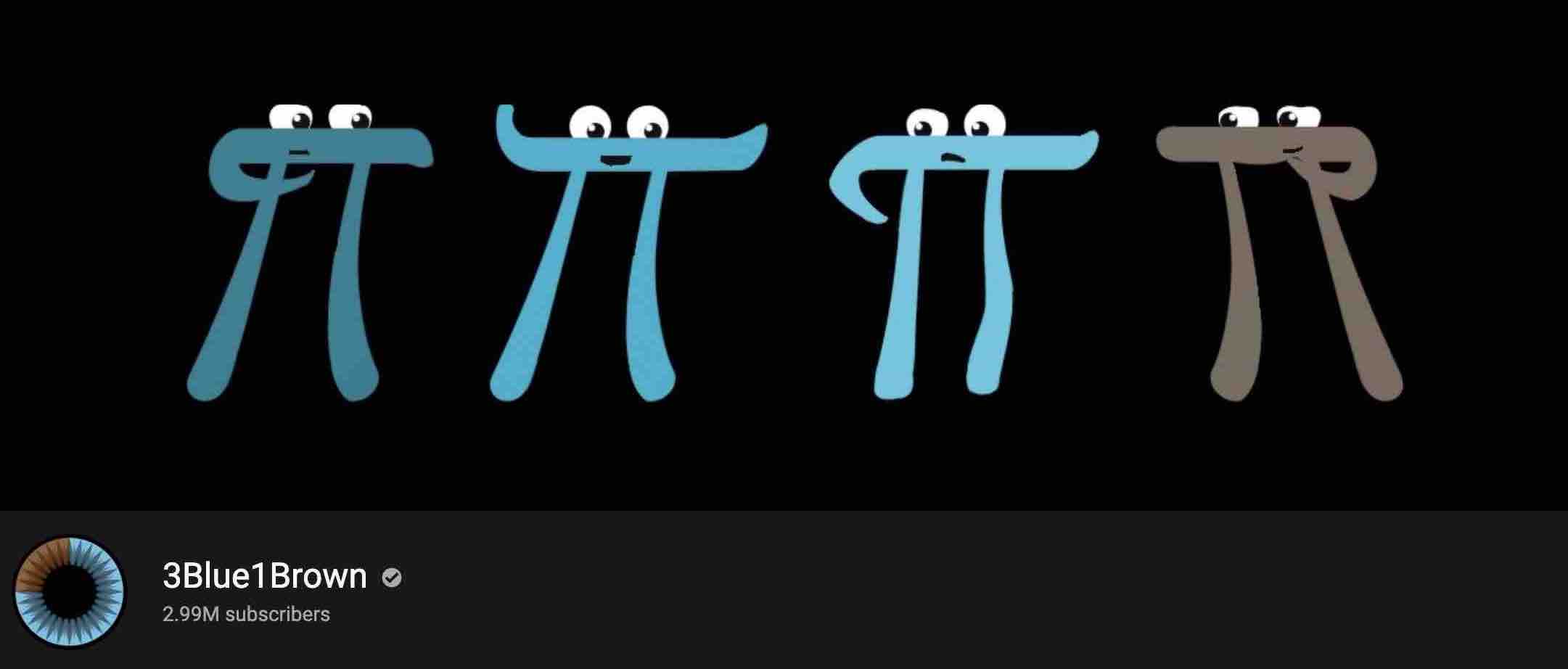
Two Minute Papers
- Awesome explanations of the latest and greatest research papers.
- Two new videos every week.
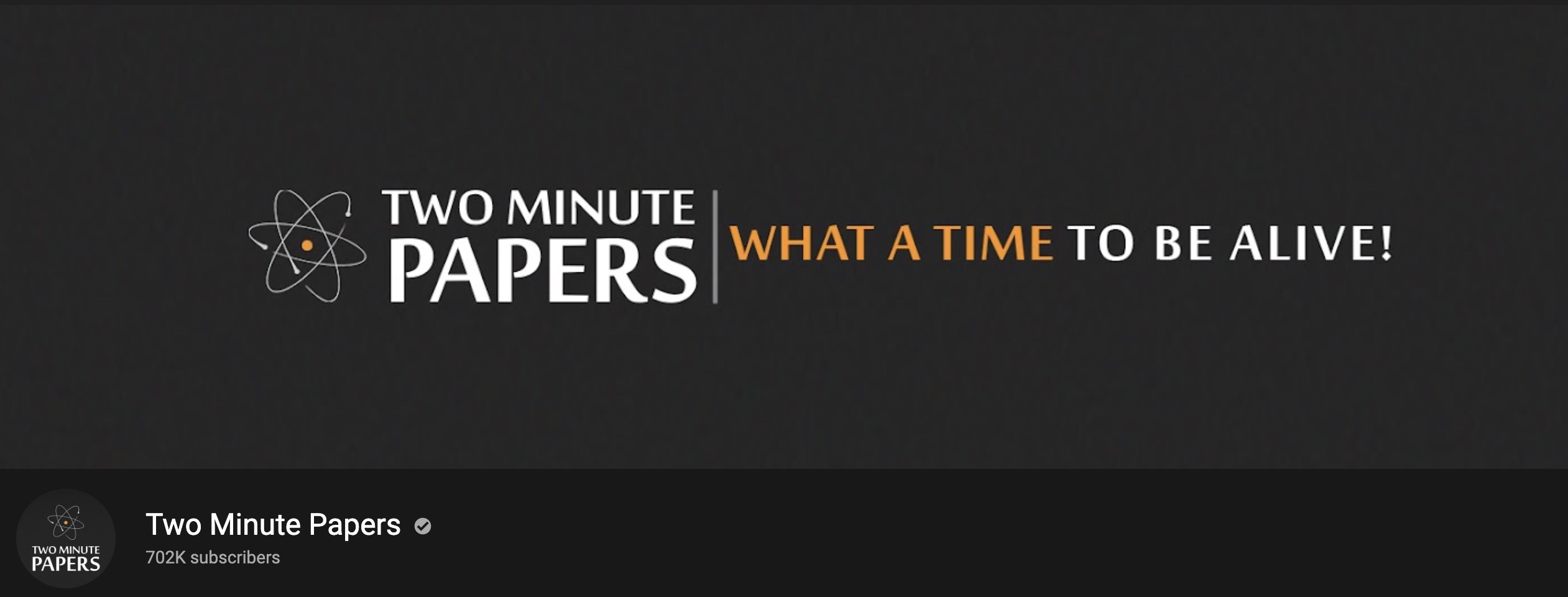
StatQuest by Josh Starmer
- Basics stats/ML concepts clearly explained.
- Recommended videos:

Yannic Kilcher
- Videos about AI/ML research papers, programming, and issues of the AI community and the broader impact of AI in society.
- Creator of the famous GPT-3, GPT-2 and Attention Is All You Need explanation videos.
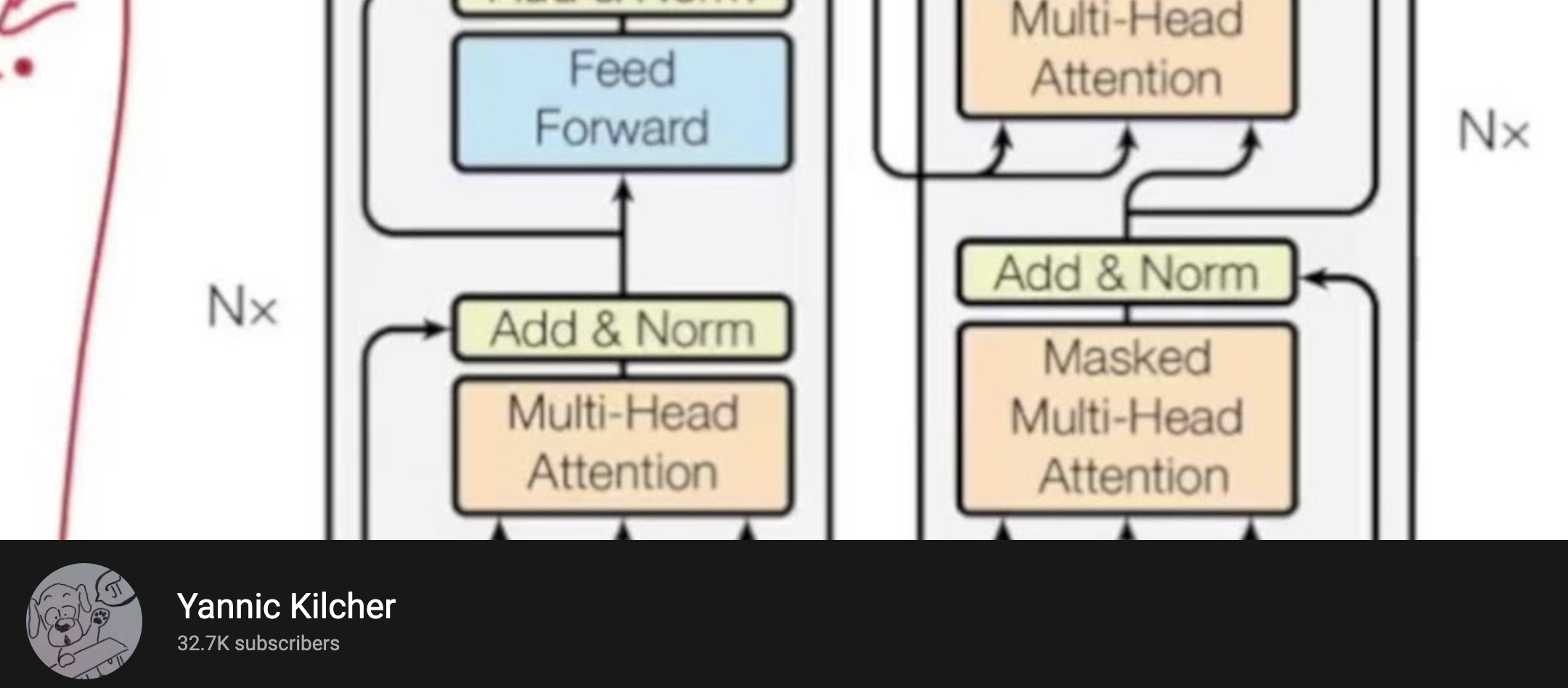
Sebastian Raschka
- Video Lectures from Adaptive Linear Neurons to Zero-shot Classification with Transformers recorded by Sebastian Raschka, UW-Madison.
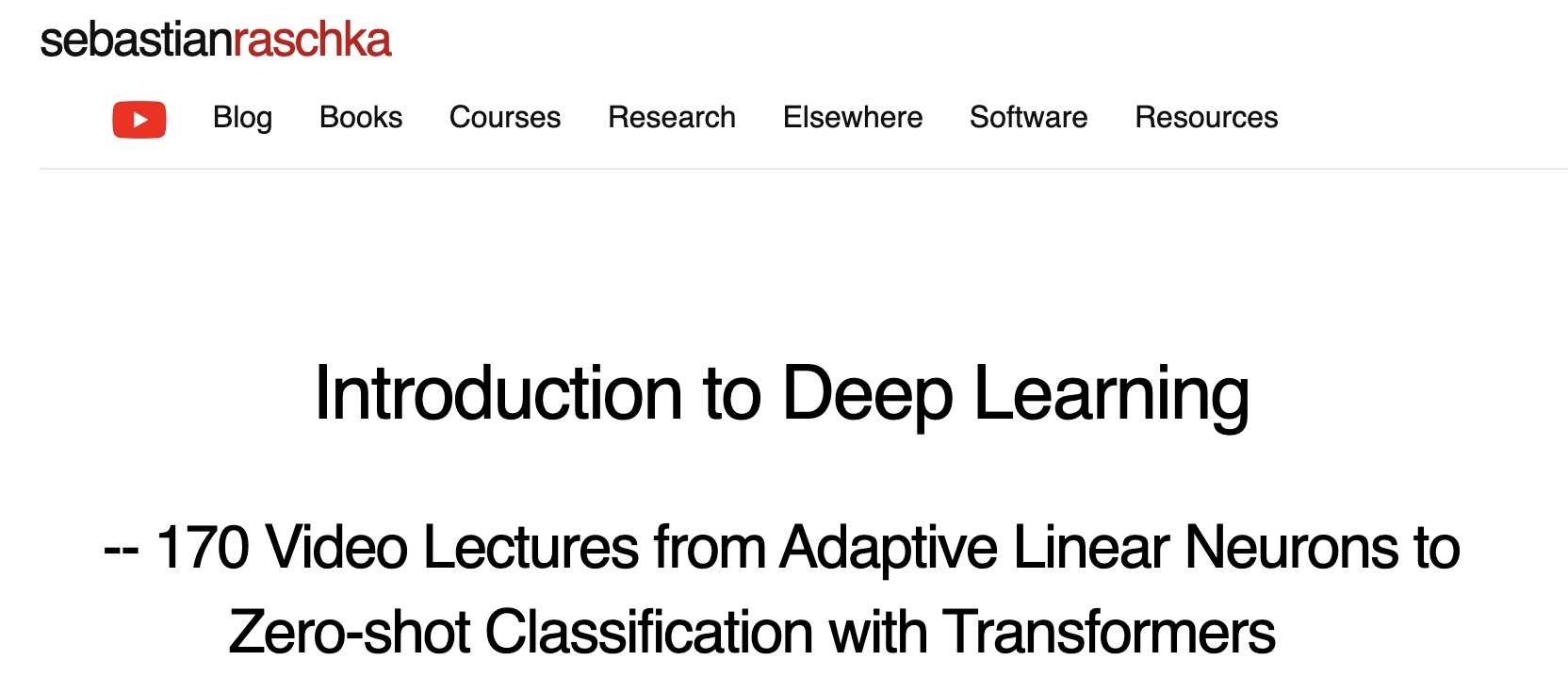
- Video Lectures about Python Basics, Tree-based Methods, Model Evaluation, and Feature Selection by Sebastian Raschka, UW-Madison.
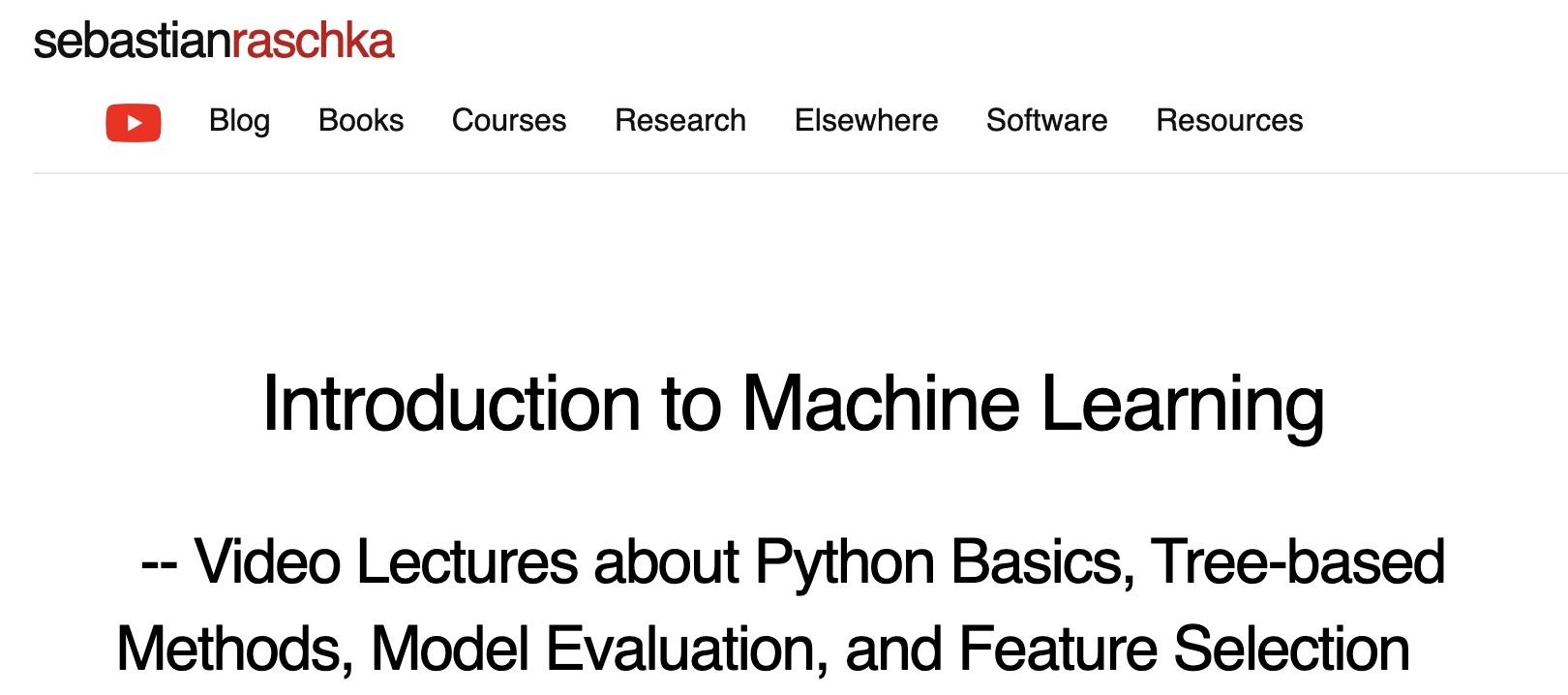
Bay Area Deep Learning School
- Talks from the Bay Area Deep Learning School on September 24/25, 2016.
- Recommended videos:
- Foundations of Deep Learning (Hugo Larochelle, Twitter)
- Deep Learning for Computer Vision (Andrej Karpathy, OpenAI)
- Deep Learning for Natural Language Processing (Richard Socher, Salesforce)
- TensorFlow Tutorial (Sherry Moore, Google Brain)
- Foundations of Unsupervised Deep Learning (Ruslan Salakhutdinov, CMU)
- Nuts and Bolts of Applying Deep Learning (Andrew Ng)
- Deep Reinforcement Learning (John Schulman, OpenAI)
- Theano Tutorial (Pascal Lamblin, MILA)
- Deep Learning for Speech Recognition (Adam Coates, Baidu)
- Torch Tutorial (Alex Wiltschko, Twitter)
- Sequence to Sequence Deep Learning (Quoc Le, Google)
- Foundations and Challenges of Deep Learning (Yoshua Bengio)
Dynamic Programming by Aditya Verma
- Great explanations of algorithmic problems based on coding patterns. Also, some of the best DP tutorials out there.

Videos




















































